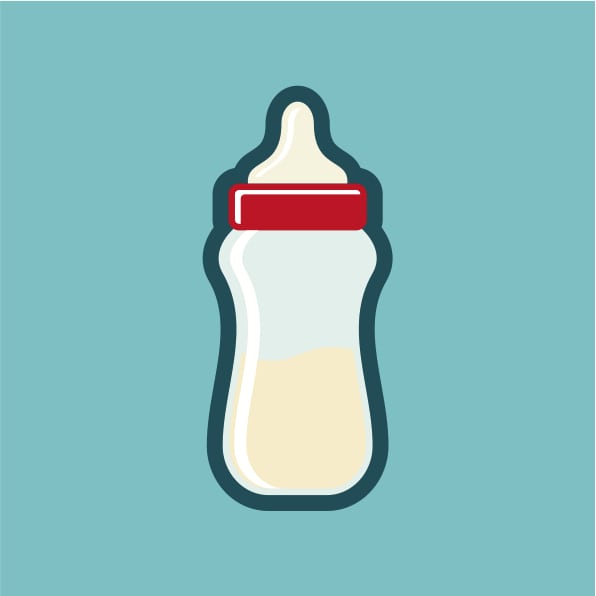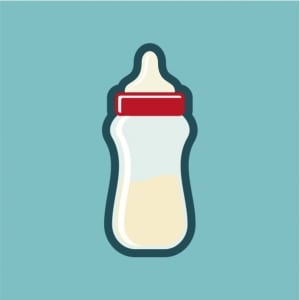Some families are choosing goat milk formula as an alternative to breastmilk or other formulas. Here at Growing Healthy Together, we are big proponents of moms breastfeeding their infants. Stick with breastfeeding as long as you can and give your baby the immune boost, cognitive boost, and obesity- and anemia-prevention they need at the start of personhood. The benefits are usually worth the struggle. However, we understand that sometimes the struggle is too great to overcome.
When breastfeeding isn’t an option, mothers need to rely on formula to feed and nourish their babies. When necessary, we recommend organic formula as an alternative to regular formula. Formula is usually either cow-milk-based or soy-based, though we are finding an increase in the use of goat milk as a base for formula. One such formula that has been successful for kids older than 12 months is Kabrita.
Goat milk is an ancient source of nutrients for humans. This is something we might have used many hundreds of years ago to feed our families. While goat milk is a good alternative to using cow milk, but we don’t recommend goat milk as a substitute for formula. In an April 2010 publication in Pediatrics, Fresh Goat’s Milk for Infants: Myths and Realities, researchers found that infants fed exclusively with goat’s milk suffered a number of negative health effects.
Goat milk shouldn’t be the only source of nutrition for your child, but is a good nutritional addition to a diet and might be comparable to cow milk.
Benefits of Goat Milk
- It’s less allergenic
- Softer curd (protein clumps) are easier and faster to digest
- Goats require less space and resources to farm
- It has less lactose
- It has more calcium, Vitamin B6, Vitamin A, Potassium, Niacin, Copper, and Selenium
- It’s more similar to breast milk
Goat Milk’s Downside
- Your kid might still be allergic to goat milk if they are allergic to cow milk protein.
- It’s hard to find low-fat goat milk.
- It has less B12 and folic acid than cow milk (goat milk needs folic acid supplement)
- It tastes a little different. Not bad – just different.
If your child has a cow milk protein allergy, it’s important to consult your healthcare practitioner before trying goat milk. Studies show that there are some similarities between cow milk protein and goat milk protein. If you have a child with cow milk sensitivity, goat milk might be worth a try. However, a nut milk alternative may be more successful for you and your family.
For questions, comments or helpful tips to your fellow parents, respond to this post or contact us!






